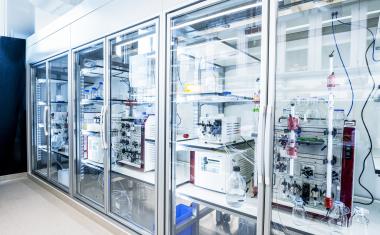Johnson Matthey Uses Kebotix AI to Create Catalytic Coatings
UK sustainable technologies company Johnson Matthey and Kebobtix, a US technology platform company for new chemicals and materials, have agreed to jointly explore developing the next generation of coatings for catalytic converters.
Johnson Matthey said Kebotix’s artificial intelligence (AI) capabilities has potential to enhance its digital transformation in the chemical industry.
The collaboration aims to discover innovative methods to increase the efficiency of experiments leading to the optimization of coating formulations for catalytic converters. The project will employ Kebotix’s ChemOS Pro technology, developing machine learning models via the company’s proprietary active learning optimization algorithms.
Scientists can use the predictions as a virtual catalyst design lab and validate their design choices to avoid spending unnecessary experimental resources on suboptimal designs, explained Johnson Matthey, adding that reducing the number of experiments is expected to lead to faster improvements.
“Our tools will learn from Johnson Matthey’s institutional data and use the lessons learned to predict better-performing catalysts. Kebotix’s AI will augment JM’s current approach by providing new ideas for better designs that will enable JM scientists to develop higher-performing products,” said Kebotix chief commercial officer Christoph Kreisbeck.
Chris Bennett, Johnson Matthey’s technology director, added: “We hope this opportunity to advance catalytic design by reducing greenhouse gases and other environmentally damaging pollutants leads to other opportunities to tap into Kebotix’s AI, ChemOS Pro and entire innovative portfolio.”
Headquartered in Cambridge, Massachusetts, Kebotix said myriad positive results from its digital platform include increased return on investment and an acceleration of time to market from years to months.
Author: Elaine Burridge, Freelance Journalist



















